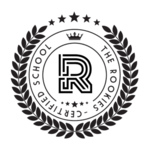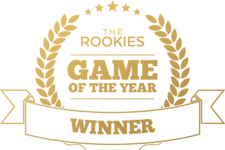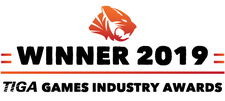Ma In Game Arts And Design
MA Games Art and Design
Why choose Herts?
- Excellent Reputation: Ranked 1st in the UK as Top Games Development School (10th worldwide) and 1st for Games Design & Development Production Excellence (Rookies World School Rankings® 2020).
- Employment Prospects: Graduates work for most major games' companies including BAFTA winning UK games studio Creative Assembly, Frontier, Splash Damage, Guerrilla Games, Mediatonic Games and Rare.
- Industry-Related Learning: There are work related learning opportunities on this course, all students complete a live external brief provided by a major games studio as part of their coursework.
- This course is up for periodic review
This course is due to be renewed at a Periodic Review event which will be held on September 2022.
We anticipate that there will be further enhancements made to the course as a result of the Review.
Our website and printed literature will be updated following completion of the Periodic Review in order to provide applicants with further confirmed details on the following:
- module titles
- whether the modules are core or optional
- the expected contact hours
- how the course will be assessed
- staff teaching on the course
- Entry requirements and key information
Minimum 2.2 degree in a relevant field. Applicants should be able to demonstrate recent relevant education or experience in their chosen discipline and have an ability to communicate effectively both in their chosen media and written and spoken English. Accreditation of professional experience may be possible for practitioners without a degree.
A minimum IELTS score of 6.5 overall with at least 5.5 in all components (or equivalent) is required for those for whom English is not their first language.
If you do not have the required level of English for entry, our academic English courses can help you to achieve this level.
Institution code
H36 School of study
School of Creative Arts Course length
- Full Time, 1 Years
- Part Time, 2 Years
Location
- University of Hertfordshire, Hatfield
- Sign up for alerts
Get access to personalised content, tailored towards your interests:
- Information on your favourite courses
- Tips to help you through the application process
- Blogs, vlogs and advice from current students
Form successfully completed. Thank you.
Please check, and fix the following possible errors:
- Employability
Careers
Particular emphasis is given to providing you with the skills necessary to further your career as an Games Artist. The course is designed to help you understand and work within the contemporary media environment.
You will also acquire enquiry and information handling skills, enterprise skills in the development and presentation of ideas, in communicating in the spoken and written word, and addressing particular audiences.
We are a Rookies Certified School. Find out more here.
Winner of The Rookies Game of the Year 2020 (Uplink)





About the course
- The MA Games Art and Design degree allows you to develop your Games Art and Design skills and knowledge to a professional level.
- You will produce a commercial-standard personal portfolio that reflects the forefront of current practices in approach, style and vision.
- Explore the theoretical and contextual understanding of games art, its audiences and significances in our contemporary media culture.
- Develop professional-level enquiry, research, creative invention, project planning and management practices.
- On this masters degree you will learn in a multi-disciplinary environment through discussion and the exploration of ideas.
- See our MA Games Art Vimeo Page for showreels and alumni activity.
Why choose this course?
This MA Games Art and Design degree meets the needs of the games industry. The games industry has developed dramatically from the days of the solo practitioner to become a global market where large teams of artists work in unison to create content for the next generation of interactive game technologies. The current games art and design practitioner is likely to become a specialist in one area, such as character modelling, environment creation, lighting, animating etc. This award fuses technical knowledge of real-time rendering with the aesthetic decisions and traditional skills you will need as a games artist.
On this postgraduate Games Art and Design degree, your study will include ways of thinking about the cultural resonance of your work and about the audiences it is made for, about the nature of creativity, and the role of the Cultural Industries in a modern knowledge economy. Through your study you will develop a range of project management skills, and an ability to identify and manage your own learning. You will consider the role of enterprise opportunities in commercial, professional and social environments. Enquiry, research and clear communication underpin work throughout the programme. As well as specialist modules in your chosen discipline area the programme includes modules that are shared with other postgraduate awards in the School of Creative Arts.
The structure of MA Games Art and Design promotes cross-discipline discussion and maintains the enthusiasm and focus of discipline specialists. It enables you to develop the key transferable skills of postgraduate study grounded in activities that have currency, relevance and application for your future career and for further academic study.
The MA Games Art and Design course, part of the postgraduate Media programme, offers you a coherent learning in one of several awards. It enables you to develop creative practical skills in a discipline of your choosing. That work may extend your existing skills, knowledge and understanding, or it may mean a change of direction, new learning, and new experiences. Induction, seminars and social events for students and staff mean that you will be part of a friendly and supportive postgraduate community, which includes film makers, musicians and professionals working in new media. Senior research staff and internationally renowned professionals work with postgraduate students, helping you to develop original and challenging work.
What will I study?
On this programme teaching and learning emphasises enquiry led project work, developing the kind of independence and autonomy that is appropriate for postgraduate education. Lectures, seminars and other discussions bring students together in multi-disciplinary groups where ideas are shared, challenged, developed. Workshops and other activities develop specific discipline centered skills and understandings while tutorials develop individual study trajectories and responses to assignment tasks and briefs.
Much of the time students are engaged in self-managed independent study, undertaking enquiries and research, developing skills, inventing and developing ideas, realizing project outcomes, exploring the cultural resonance of their work.
All students on the PG Media programme engage in an interdisciplinary project as a part of their MA study, giving them an opportunity to work with students from other disciplines in an experimental and creative way.
There are work related learning opportunities on this course, all students complete a live external brief as part of their coursework.
| Module | Credits | Compulsory/optional |
|---|---|---|
| Creative Economies | 15 Credits | Compulsory |
| The Creative Economies module enables students to explore and engage with creative economies relevant to their individual practice. The module delivers a series of lectures and workshops examining creative economies. The taught sessions examine the social, political and economic dimension of creative practice across a range of professions and consider the transitional nature of creative economies. The module provides an opportunity for students to engage with people and environments, seeking an understanding of how their own practice may be located within these contexts, locally, nationally or globally. | ||
| Major Study: Games Art and Design | 60 Credits | Compulsory |
| This module offers an opportunity for the student to undertake a substantial project in one or more of the specialist areas within Games Art and Design, in such things as character modelling, environment creation, level design, lighting, animating and/or effects - as well as combinations of these and other practices. Students are required to demonstrate knowledge of the traditions and antecedents in their chosen area(s) of practice and to successfully handle the processes of visual and technical research, self-management and working with others that are required for the project. Students are also required to relate their own practice and learning to developments and emergent activities within the broad field of contemporary Games Art and Design. Through this they are looking towards the forefront of practice and knowledge in the field and at the enterprise and employability opportunities offered within contemporary practice. | ||
| Research and Enquiry | 15 Credits | Compulsory |
| This module aims to provide students with a range of research skills suitable for postgraduate-level study in art, art therapy, design, film, media and music. The module views creative, technical and therapeutic practices as research processes and helps students locate their own work within contemporary, advanced-level practice in their discipline and to make a critical evaluation of the bodies of practice and ideas that sustain them. Key skills addressed include those of research management, critical evaluation, academic conventions, notions of creative, technical and therapeutic practice as research methodologies, and a range of modes of contextual analysis. The skills gleaned on this module will provide students with a platform for research for the remainder of the programme and in their future careers. | ||
| Practice 1: Media | 30 Credits | Compulsory |
| In this module, the student develops their knowledge and understanding of current practitioners, processes, techniques and the scope of their chosen award field. They become aware of contemporary activities and of where their interests and professional aspirations might fit within current practices and developments. The student develops their independence and autonomy through a series of projects which develop their own voice or style, exploring the particular issues, processes and ideas that interest them. They also document their creative work and then use reflection to become aware of personal creative methodologies and of new learning. | ||
| Practice 2: Media | 30 Credits | Compulsory |
| In this module students are required to relate their own practice and learning to developments and emergent activities in their chosen field. In particular, students are asked to challenge their preconceptions of the boundaries, traditions and conceptual paradigms associated with their award field and to work innovatively both within their chosen field and in interdisciplinary contexts. The modules is typically delivered in two phases; an interdisciplinary group project which allows students to learn and reflect on group processes and interdisciplinary creative practices and an individual portfolio which is concentrated on creative innovation and those planning processes and documentation strategies appropriate to a student's own practice. Students continue with the personal blog they began in previous modules and produce an evaluative commentary which identifies the forefront of their field and explores the relationship of their own practice to this work. | ||
| Media Discourses | 30 Credits | Compulsory |
| This module aims to support students in developing a personal resource of key texts, debates and theories through which they can articulate and locate their own individual practice and its significance. The learning activities fall into two phases; the first reviews and introduces a range of critical and theoretical methodologies through which the experience of media artefacts may be examined and discussed. At the end of this phase, the student produces a reader where key texts are presented together with a linking commentary. During the second phase, the student undertakes a personal enquiry in which they deploy and apply a chosen approach to examine artefacts, techniques and processes in their own discipline area to discuss the ways in which meaning is made. The outcome of this enquiry is an artefact or text equivalent to around 4,000 words. This negotiated outcome may take a variety of forms but usually will draw on the practices of a student's award field. | ||
| Research and Enquiry (Online) | 15 Credits | Optional |
| This module aims to provide students with a range of research skills suitable for postgraduate-level study in art, art therapy, design, film, media and music. The module views creative, technical and therapeutic practices as research processes and helps students locate their own work within contemporary, advanced-level practice in their discipline and to make a critical evaluation of the bodies of practice and ideas that sustain them. Key skills addressed include those of research management, critical evaluation, academic conventions, notions of creative, technical and therapeutic practice as research methodologies, and a range of modes of contextual analysis. The skills gleaned on this module will provide students with a platform for research for the remainder of the programme and in their future careers. | ||
| Creative Economies (Online) | 15 Credits | Optional |
| The Creative Economies module enables students to explore and engage with creative economies relevant to their individual practice. The module delivers a series of lectures and workshops examining creative economies. The taught sessions examine the social, political and economic dimension of creative practice across a range of professions and consider the transitional nature of creative economies. The module provides an opportunity for students to engage with people and environments, seeking an understanding of how their own practice may be located within these contexts, locally, nationally or globally. | ||
Key staff
Further course information
| Course fact sheets | |
|---|---|
| MA Games Art and Design | Download |
| MA Games Art and Design | Download |
| Programme specifications | |
|---|---|
| MA Games Art and Design | Download |
| MA Games Art and Design | Download |
| Additional information | |
|---|---|
| Sandwich placement or study abroad year | n/a |
| Applications open to international and EU students | Yes |
Student experience
At the University of Hertfordshire, we want to make sure your time studying with us is as stress-free and rewarding as possible. We offer a range of support services including; student wellbeing, academic support, accommodation and childcare to ensure that you make the most of your time at Herts and can focus on studying and having fun.
Find out about how we support our students
You can also read our student blogs to find out about life at Herts.
- Funding and fees
Other financial support
Find out more about other financial support available to UK and EU students
Fees 2021
UK Students
Full time
- £9450 for the 2021/2022 academic year
Part time
- £790 per 15 credits for the 2021/2022 academic year
EU Students
Full time
- £13950 for the 2021/2022 academic year
Part time
- £1160 per 15 credits for the 2021/2022 academic year
International Students
Full time
- £13950 for the 2021/2022 academic year
Part time
- £1160 per 15 credits for the 2021/2022 academic year
*Tuition fees are charged annually. The fees quoted above are for the specified year(s) only. Fees may be higher in future years, for both new and continuing students. Please see the University's Fees and Finance Policy (and in particular the section headed "When tuition fees change"), for further information about when and by how much the University may increase its fees for future years.
View detailed information about tuition fees
Living costs / accommodation
The University of Hertfordshire offers a great choice of student accommodation, on campus or nearby in the local area, to suit every student budget.
View detailed information about our accommodation
Read more about additional fees in the course fact sheet
- How to apply
International/EU applicants without pre-settled status in the UK
Apply through our international/EU application portal
Home and EU applicants with pre-settled/settled status in the UK
Due to the ongoing Coronavirus pandemic, examinations may be replaced by an alternative form of assessment during the academic year 2021/2022. Please refer to the Programme Specification on these pages for further details.
Ma In Game Arts And Design
Source: https://www.herts.ac.uk/courses/postgraduate-masters/ma-games-art-and-design
Posted by: demarspriever.blogspot.com

0 Response to "Ma In Game Arts And Design"
Post a Comment